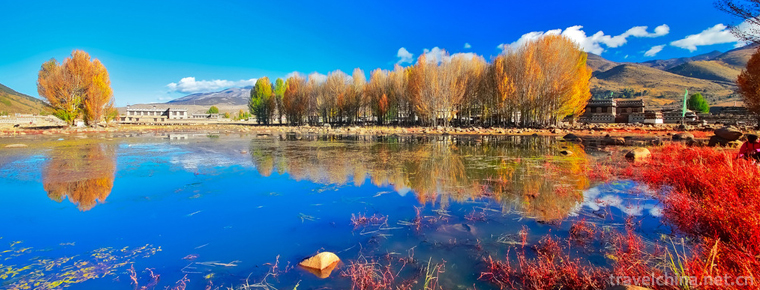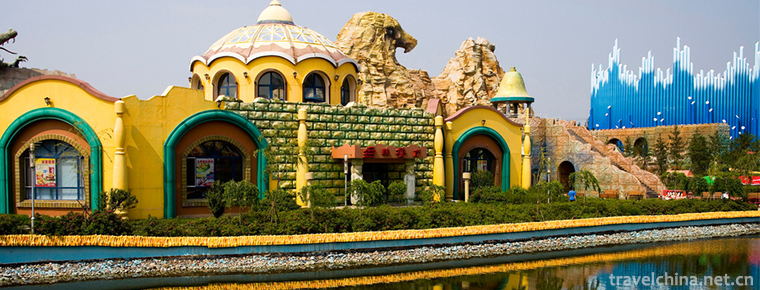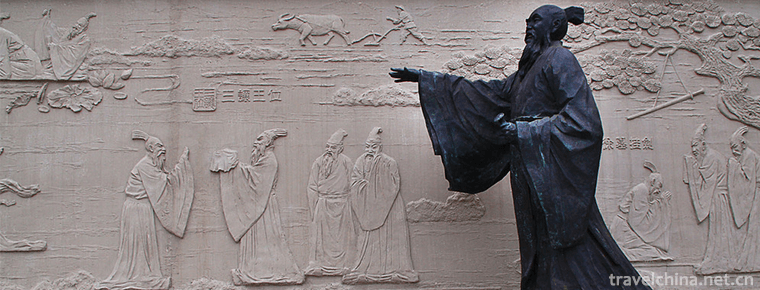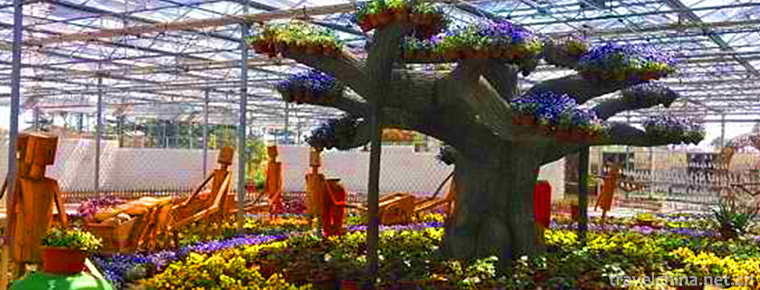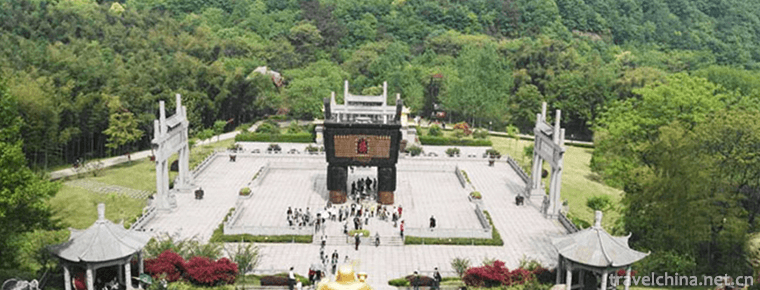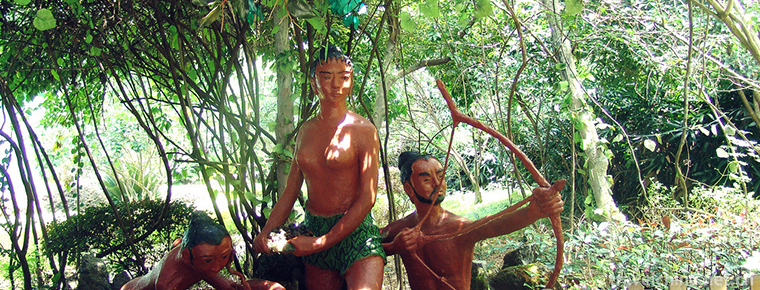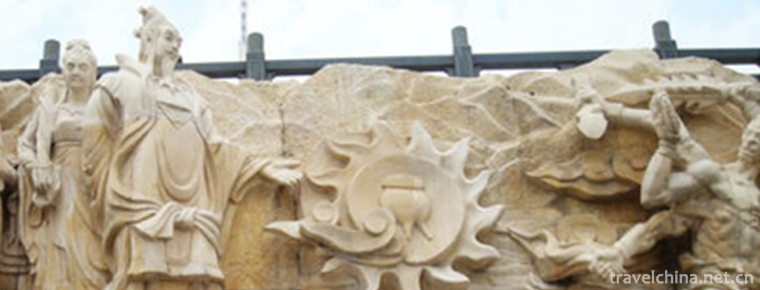Match show
Match show
Sai opera is an ancient opera which has been spread in Shanxi, Hebei, Inner Mongolia and Shaanxi. It is a traditional literary form with strong local characteristics of frontier fortress. Sai opera was formed in the Song and Jin Dynasties. Because of its long history, it is known as "living fossil" in the opera circle. After the founding of the People's Republic of China, the competition once again appeared on the stage. In 1960, during the performance of literature and art in northern Shanxi, the Shuoxian Theatre Troupe performed Meng Liang and Pirates Bones, and then the play disappeared on the stage. In 2007, the Shuozhou Dayang Opera Troupe made a tentative resumption performance and videotaped it.
The performance of the play originated from Zhou's "township nuo", Han's "elephant man" and Tang's "big face". It was once a popular traditional religious sacrificial performing art.
In Lu You's "Fangweng Poetry Draft" of Southern Song Dynasty, there are poems of "coming home to see the goddess of racing at the river bridge tomorrow" and in Du Shanfu's "Crops don't know the hurdles" of early Yuan Dynasty, there are also descriptions of "not meeting the gods, but constantly beating drums and sifting gongs". In the Northern Song Dynasty, in the Yuan Dynasty, in the Ming Dynasty, a large number of court artists were captured in Shanxi and Hebei provinces and organized as musicians; in the new court, the families and children of the old ministers were distributed to Shanxi, demoting them to musicians who lost their personal freedom. As the newly compiled Wutai County Chronicle records, "There are fifteen happy households in five places in Hongwu of the Ming Dynasty. At the end of Jianwen, there were also officials and gentry in the capital. They were demoted as happy households, one by one, in five places." According to feudal law, Yuehu generations live on entertainment and entertainment, specializing in games and undertaking folk wedding and funeral drums. According to legend, the Chujia class in Songtai Village, Wutai County, and Hou class in Yingxian County, all of whose ancestors were officials of the Ming Dynasty, were dispatched to Shanxi North Singing Competition for their conviction. Because of traffic congestion in Lehu residential area, although the system of Lehu was abolished from 1722 to 1735 (during the reign of Yongzheng in the Qing Dynasty), before the Revolution of 1911, there were still many Lehu in the mountainous areas of southeastern Shanxi and Northern Shanxi. According to local customs, they performed theatrical competitions and theatrical dramas at some temple fairs every year.
historical origin
The sacrificial activities in Han Shu Jiao Shi Zhi are called "Sai" and "Sai" after the Six Dynasties. In the past ten years and nine droughts in northern Shanxi, there were many sacrificial activities to pray for good weather, drive away ghosts and epidemics, and chase down drought goats. In the process of holding sacrificial competitions, there are competitions. This special theatrical performance activity and sacrificial competitions are called "competitions". Therefore, it is also called "Shensei Opera" by the people. In the mid-Qing Dynasty, local operas flourished and competition was impacted. However, because their performances were integrated with sacrificial activities, they were not replaced by other operas. If other operas were invited, some of them would have to be performed after the opening of the competition. The competition is performed by local musicians, who take their families as units and form their own professional class clubs. The daughter of the Lehu family could not marry ordinary people or engage in other professions, so she went on stage to perform, making the play the earliest one with female actors in North Shanxi. The Danjiao figures in the windows of northern Shanxi are not called opera girls, but "contestants".
From the late Qing Dynasty to the Republic of China, the competitions declined. Family classes have been disintegrated, some of them have changed to North Road Bangzi or other local operas.
After the founding of the People's Republic of China, the competition once again appeared on the stage. In 1960, during the performance of literature and art in northern Shanxi, the Shuoxian Theatre Troupe performed Meng Liang and Pirates Bones, and then the play disappeared on the stage. In 2007, the Shuozhou Dayang Opera Troupe made a tentative resumption performance and videotaped it.
The Opera Competition was selected into the second batch of national intangible cultural heritage list.
artistic characteristics
There are fixed stage entrances, fixed dates and relatively fixed repertoires for the performance of the contest. Competition day is the date of sacrifice to gods, and the stage is also called the competition altar, which is specially used for performing competitions. In most rural areas, there is no dedicated stage. The stage is usually performed in the Dragon King Temple, the Water Holy Temple or other temples and tables that are considered to be spiritual. The regular repertoire of the performances is "tuning ghosts" and "cutting off drought goats". The performance of the competition is rough and primitive. In addition to the unique performance program in sacrificial activities, it also absorbs folk dance, folk martial arts and other performing skills.
There is no dragon trap in the play. There are generals without soldiers and emperors without attendants. Even if the emperor made an edict, he had to read it out by himself. Only raw, dan, clean, no ugly feet. Some plays have "quotation", which is sometimes the narrator of the plot and sometimes the role in the play. There is no singing tone in the performance, only Tao Bai and chanting, accompanied by gongs and drums, playing the role of sentence breaking and foiling. In addition to gongs and drums, percussion instruments such as cymbals, cymbals and cymbals are also used, without strings. The stage of the competition is very rudimentary. Usually there are only one table, two chairs, a big curtain and two curtains. Sometimes, sacrificial banners, umbrellas, masks and other hanging tables are also built into a god's shed to embellish and beautify the stage. Clothing is limited by economic conditions, and it is also very simple and rough, but the mask is vivid in shape, bright in color and simple in style. In the performance, before the opening of a play, two colorful actresses sat on both sides of the stage for people to enjoy, called "sitting on the stage", commonly known as "pressing the bench". Actresses are usually the daughters or daughters-in-law of the class owners. They usually sit side by side and turn their faces occasionally. If they look beautiful, the audience will cheer and throw lottery money on the stage. In feudal society, the social status of Lehu was very low. Lehu family was called "forgetting eight families" and Lehu children were called "forgetting eight families". They are not allowed to be equal to the common people, to intermarry with other nationalities, to take scientific examinations, and to make a living by playing hard work and underprivileged work. This custom reflects the humble status of the happy household women who were teased in feudal society.
The overall performance of the competition includes sacrificial ceremony, folk music playing, drama performance, square fire, storytelling and history telling. The percussion instruments used include gongs, drums and cymbals; the percussion instruments include sheng, pipes, suonas, and "flat company". The percussion signs include "General's Order", "Shuilong Yin", "Tight Eight Beats", "Big Wild Goose Landing" and more than ten pieces. During the performance of the special play "Tuning Ghosts", the performers should wear ghost masks. In the end of the play, there is a "bamboo broom" tied with red silk, which is a symbol of the type of play. The stage art of the competition is very simple, reflecting its simplicity, conciseness and distinct sacrificial color. There are pythons, robes, shawls and towels in clothing, but the texture is rough and the manufacturing process is poor. In the performance, there are many fastidious points in the dress and the use of masonry. The unique performing customs of the game, such as sitting on the stage, blowing the stage, scraping the streets, collecting and talking night books, fully reflect the characteristics of the ancient, sacrificial and frontier fortress culture of the game.
Main repertoire
Competition opera is a kind of recitation opera, without singing and singing music, only Gong and Drum Percussion music, to set off the atmosphere with broken sentences. There are two types of theatrical items in the contest, one is the special sacrificial repertoire, such as "tuning ghosts" and "chopping off drought gourds", the other is the general performance repertoire, which has about sixty performances. From the subject matter, it can be divided into the following categories: 1) Buddhism and Taoism. For example, "Buddhist Temple" and "Sima Maoming Broken the Three Kingdoms at Night" and so on. (2) Historical stories. Such as Lubu in the Three England War, Meng Liang's Pirates of Bones, The Single Knife Club, Out of Youzhou, etc. (3) Other plays. Such as "Shuangyuan Yi", "Three Captures", "Chen Bizi Capture Seal" and so on.
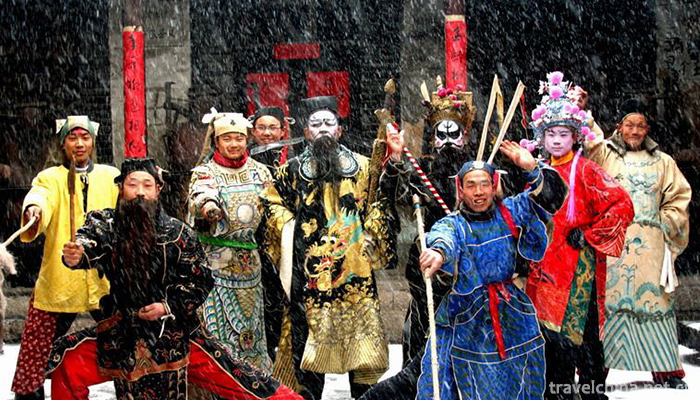
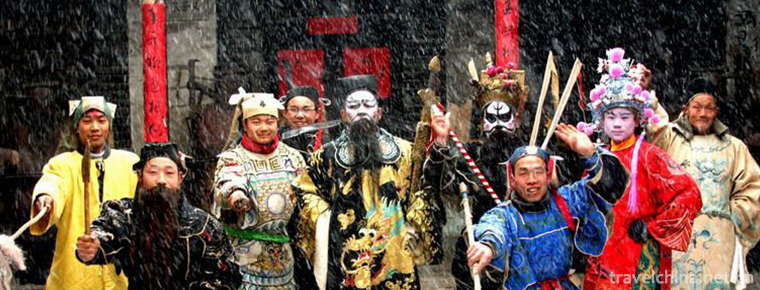
Match show
-
Daocheng Yading County Ganzi Sichuan China
Aden Scenic Spot is located in Riwa Township, Daocheng County
Views: 591 Time 2018-10-12 -
Changchun Movie Wonderland
Changchun Movie Wonderland, located in Nanguan District, Changchun City, Jilin Province, was founded in 2003. It is a comprehensive tourist area integrating science and technology
Views: 214 Time 2018-12-05 -
China of chunqiu yancheng tourist area
China Spring and Autumn Yancheng Tourist Area (also known as Yancheng, Spring and Autumn Yancheng) is located in the central city of Wujin District, Changzhou City
Views: 267 Time 2018-12-06 -
Shanghai Metropolitan Vegetable Garden
Shanghai Metropolitan Vegetable Garden is located on the Bank of Hangzhou Bay, Bay Town, Fengxian District. It is about 50 kilometers away from the center of Shanghai
Views: 326 Time 2018-12-19 -
Ertan National Forest Park
Ertan National Forest Park is located in Yanbian County and Miyi County, the northern suburb of Panzhihua City, Sichuan Province, with a total area of 732.4 square kilometers
Views: 157 Time 2018-12-22 -
Malenqi Peak Forest Tourist Area
Located at the junction of Tongling, Nanling and Fanchang counties on the South Bank of the Yangtze River, Maren Qifeng scenic spot is located in the middle of the southern Anhui tourism belt
Views: 218 Time 2019-02-06 -
Totem Road
The ancient totem road is located in Yangshuo's famous "Shili Gallery". Not far from Guilin, the scenic spot exhibits primitive life scenes such as stone tools, pottery, natural totem pillar
Views: 170 Time 2019-02-22 -
Legend of Dayu
Dayu's water control is a great project in the ancient times of our country. It once benefited mankind and became a symbol of the strength and wisdom of the ancient people of our country. Until the Sp
Views: 241 Time 2019-07-16 -
China West Normal University
Xihua Normal University is a key university in Sichuan Province. The school was founded in 1946 and began at the National Northeast University during the Anti-Japanese War. At the beginning of the Ant
Views: 234 Time 2019-08-31 -
Social undertakings in Luzhou
As of the end of 2018, Luzhou has added 1 provincial key laboratory, 1 provincial engineering technology research center, 4 incubators of science and technology enterprises above the provincial level, and 16 national high-tech enterprises. The annual output value of high-tech reached 38
Views: 367 Time 2020-12-14 -
Meishan secondary industry
By the end of 2019, there were 596 Industrial Enterprises above Designated Size, and the added value of industries above designated size increased by 9.8%. In the whole year, 82 kinds of products from industries above Designated Size participated in the statistics,
Views: 329 Time 2020-12-18 -
Dazhou health
By the end of 2019, Dazhou city has 4514 health institutions, including 430 hospitals and health centers, 8 maternal and child health centers (stations) and 8 centers for Disease Control and prevention. There were 35862 beds in health institutions. Am
Views: 373 Time 2020-12-20
